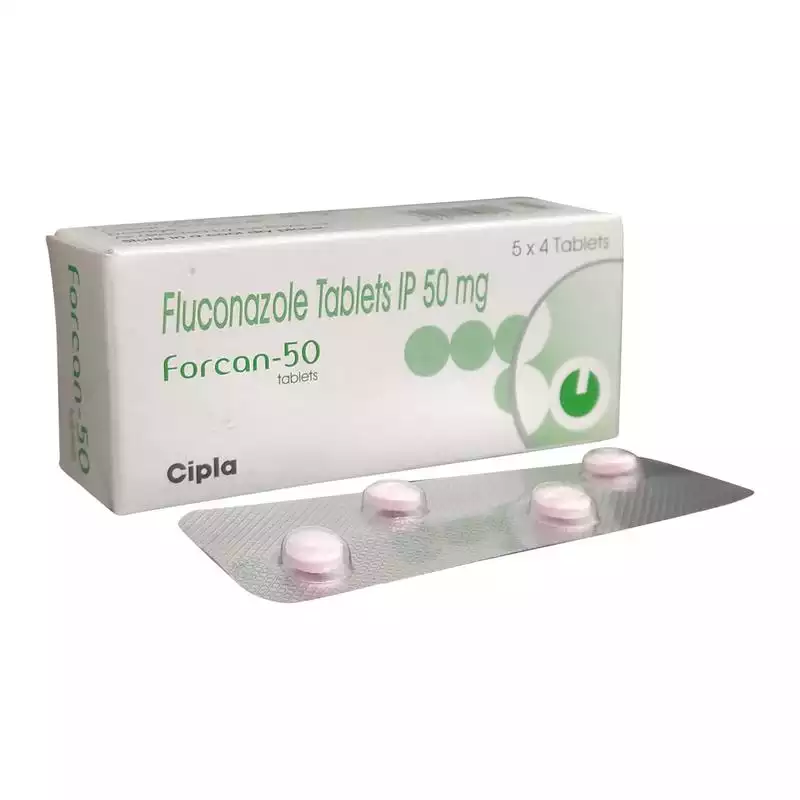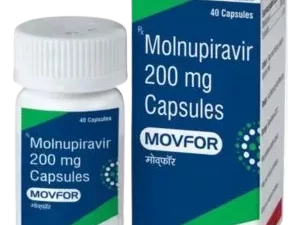✅ “Forcan 50 mg – Trusted Antifungal Treatment for Yeast & Skin Infections”
🔬 What is Forcan 50 mg?
Forcan 50 mg contains Fluconazole, an antifungal medication that treats and prevents a wide range of fungal infections. It belongs to the azole class of antifungals and works by inhibiting fungal cell membrane formation, stopping the growth and spread of fungi.
It is effective against Candida, Cryptococcus, and Dermatophytes, and is commonly used for vaginal yeast infections, oral thrush, skin infections, and fungal prophylaxis in immunocompromised patients.
⚙️ Mechanism of Action
Fluconazole works by inhibiting the fungal enzyme 14-alpha demethylase, which is essential in the synthesis of ergosterol, a key component of fungal cell membranes. This disruption weakens the fungal cell wall, leading to its destruction.
💊 Indications (Uses)
Forcan 50 mg is prescribed to treat or prevent:
- ✅ Oropharyngeal and esophageal candidiasis (oral thrush)
- ✅ Vaginal candidiasis (yeast infections)
- ✅ Dermatophytosis (ringworm, athlete’s foot, jock itch)
- ✅ Pityriasis versicolor (a fungal skin infection)
- ✅ Urinary tract fungal infections
- ✅ Systemic candidiasis (in immunocompromised patients)
- ✅ Cryptococcal meningitis (especially in HIV patients)
- ✅ Fungal prophylaxis in neutropenic patients (e.g., chemotherapy)
📋 Dosage and Administration
Always follow your healthcare provider’s instructions.
Typical Dosage:
- Oropharyngeal candidiasis: 50–100 mg once daily for 7–14 days
- Skin infections (dermatophytosis, tinea): 50 mg once daily for 2–4 weeks
- Fungal prophylaxis: 50 mg once daily as directed
- Vaginal candidiasis: Typically a single 150 mg dose (higher than 50 mg)
Administration Notes:
- Can be taken with or without food
- Take at the same time daily for consistent blood levels
⚠️ Warnings and Precautions
- Use with caution in patients with liver disease
- Regular monitoring of liver enzymes may be needed during long-term use
- May interact with medications that prolong the QT interval (heart rhythm risk)
- Not recommended in pregnancy unless absolutely necessary
- Avoid self-medication for undiagnosed fungal infections
💢 Side Effects
Common:
- Headache
- Nausea
- Abdominal pain
- Diarrhea
- Dizziness
- Rash
Less Common but Serious:
- Hepatotoxicity (liver damage)
- Severe skin reactions (e.g., Stevens-Johnson syndrome)
- QT prolongation (heart rhythm changes)
Most side effects are mild and resolve when treatment ends.
🤰 Use in Pregnancy and Breastfeeding
- Pregnancy: Generally avoided unless essential—especially in the first trimester
- Breastfeeding: Small amounts pass into breast milk; considered safe for short-term use
🔄 Drug Interactions
Use caution when combining Forcan (fluconazole) with:
- Warfarin – increased risk of bleeding
- Phenytoin / Carbamazepine – increased toxicity
- Oral hypoglycemics (e.g., glipizide) – may enhance effects
- QT-prolonging drugs (e.g., erythromycin, amiodarone)
Always inform your doctor of all medications or supplements you’re taking.
🧊 Storage Instructions
- Store at room temperature (15°C–30°C / 59°F–86°F)
- Keep away from moisture and direct sunlight
- Keep out of reach of children









Avery (verified owner) –
Helps me stay strong even during flu season. Excellent product!